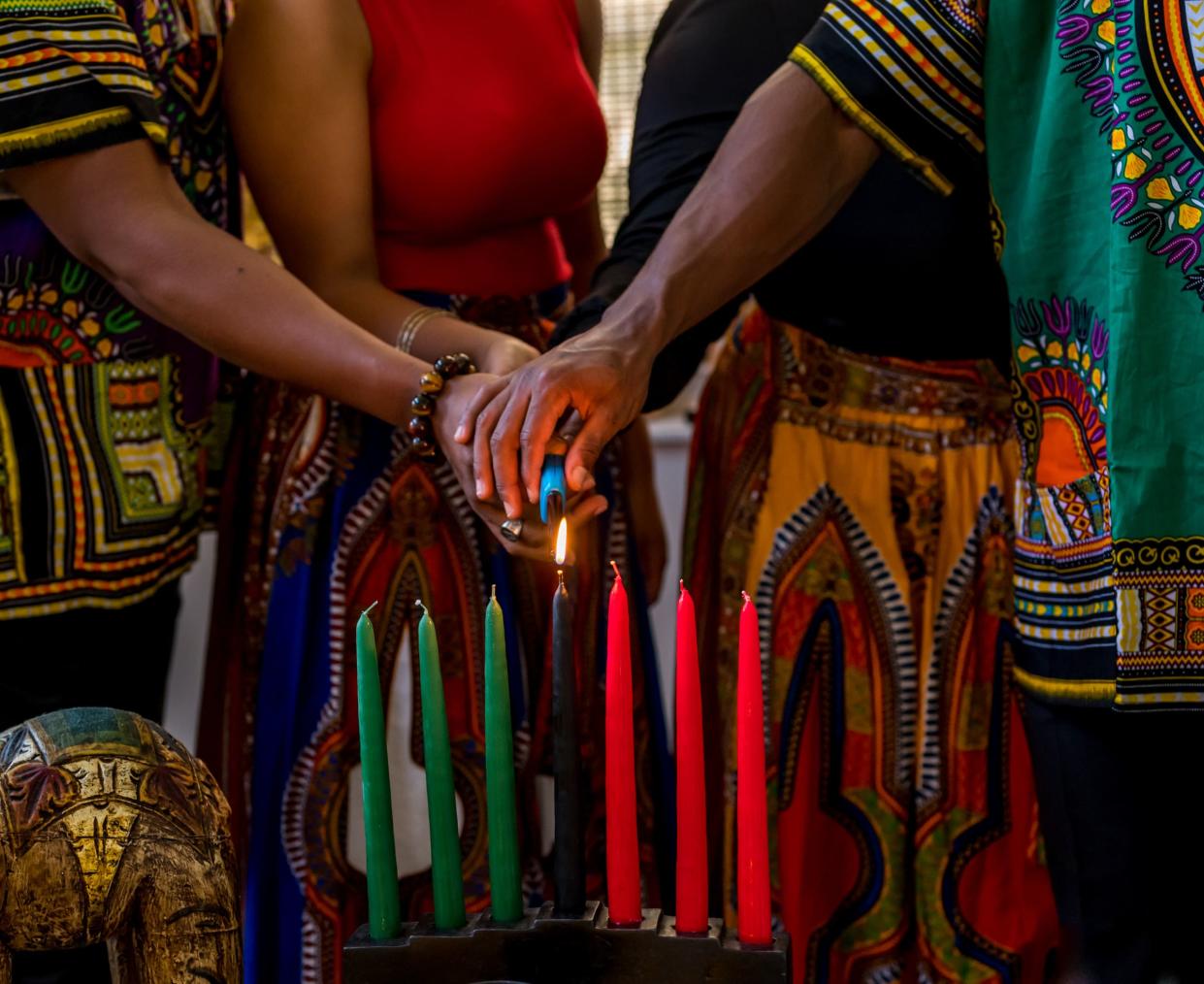The 7 principles of Kwanzaa explained

Kwanzaa was created back in the 1960s by Black nationalist and Pan-African studies professor Maulana Karenga for “families and communities [to] come together to share a feast, to honor the ancestors, affirm the bonds between them, and to celebrate African and African American culture,” according to the National Museum of African American History & Culture.
The seven-day holiday follows the Nguzo Saba, typically known as the seven principles. Celebrated from Dec. 26 until Jan. 1, Kwanzaa (also known as Kwanza, with one “a”) is derived from the Swahili saying “matunda ya kwanza,” meaning “first fruits.”
Each day of the week-long celebration is dedicated to a specific principle and a corresponding candle is lit on the kinara, a seven-branched candleholder.
Aside from lighting a candle, each day holds its own various activities such as reciting the poetry and writings of famous Black intellectuals, drumming and sharing meals.
While Kwanzaa may not be as celebrated as it was during its peak in the 1980s and ’90s, its purpose and meaning still hold value and deserve to be recognized. So, let’s take a look at the holiday’s seven principles and dig into their meanings below.
1. Umoja (Unity)
As defined by the official Kwanzaa website, Umoja focuses on striving for and maintaining “unity in the family, community, nation, and race.” The National Museum of African American History & Culture suggests Steel Pulse’s “Worth His Weight in Gold (Rally Round)” as the song of reflection and Toni Morrison’s “Beloved” as the reading of the day.
2. Kujichagulia (Self-determination)
The day of self-determination requires participants “to define ourselves, name ourselves, create for ourselves and speak for ourselves.” The suggested reading is Daniel Black’s “The Coming” and the suggested song is Minnie Riperton and Rotary Connection’s “I Am The Black Gold Of The Sun.”
3. Ujima (Collective work and responsibility)
Set aside “to build and maintain our community together and make our brother’s and sister’s problems our problems and to solve them together,” as written on the official Kwanzaa website, Ujima is “also recognition and respect for the fact that without collective work and struggle, progress is impossible and liberation unthinkable.” “Optimistic” by Sounds of Blackness is the suggested song and “The Warmth of Other Suns” by Isabel Wilkerson is the suggested reading for the day.
4. Ujamaa (Cooperative economics)
Those participating in the holiday should use this day “to build and maintain our own stores, shops and other businesses and to profit from them together.” Ujamaa means “familyhood,” which is why the principle urges Black people to work together in order to build themselves up economically. The suggested song of reflection is Curtis Mayfield’s “We’re a Winner” and the suggested reading is Angela Davis’ autobiography, “Angela Davis: An Autobiography.”
5. Nia (Purpose)
Nia, meaning purpose, is designated “to make our collective vocation the building and developing of our community in order to restore our people to their traditional greatness.” Suggested reading for Nia is a poem by June Jordan titled “Poem About My Rights” and the suggested song is Stevie Wonder’s “Higher Ground.”
6. Kuumba (Creativity)
In alignment with its preceding principle, Nia, Kuumba asks participants “to do always as much as we can, in the way we can, in order to leave our community more beautiful and beneficial than we inherited it.” “Blues People: Negro Music in White America,” written by Leroi Jones is the suggested reading and John Coltrane’s “Africa” is the suggested song of the day.
7. Imani (Faith)
The seventh and final principle of Kwanzaa is Imani, which means faith. The final day asks participants “to believe with all our heart in our people, our parents, our teachers, our leaders and the righteousness and victory of our struggle.” Margaret Walker’s poem, “For My People” is the suggested reading, and “Keep Your Head to the Sky” by Earth, Wind & Fire is the suggested song.
Trending Stories

